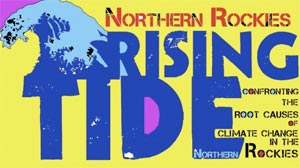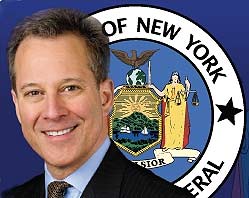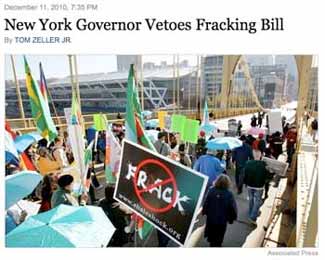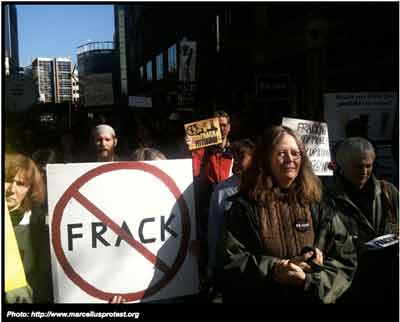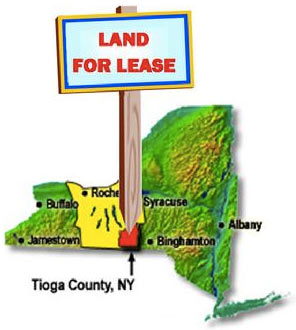Biblio
Commentary: Is the natural-gas story ready to transform?
“Natural gas is the ugly duckling of the commodities,” said Ben Smith, president of First Enercast Financial, an information vendor serving energy markets.
But just like the beloved Hans Christian Andersen fairy tale, the natural-gas story has the potential to transform — if investors are patient enough to wait.
Many commodities had seen a downtrend since the peak in prices in 2008, but copper, gold and agricultural commodities have been making new highs, and oil and iron ore have rebounded, said Evan Smith, co-manager of the $900 million Global Resources Fund, which climbed 38% last year.
“Natural gas is probably the only commodity that has set lows recently, with no rebound,” he said.
At the same time, the natural-gas market has had about $28 billion of capital come in over the last couple of years, in the form of joint ventures, largely from foreign oil companies such as India’s Reliance Industries Ltd. or France’s Total S.A. he said.
There’s too much capital coming in from foreign oil companies, and this “has largely led to continued drilling, which keeps the supply higher than it should be,” he said. And it could take a year before the market sees an incremental decline in drilling activity from companies reducing capital commitments to drill natural gas.
Even then, it could take even longer before the market reacts.
“The market currently believes this massive [shale] supply windfall will keep prices suppressed for many years,” Ben Smith said.
See: Big Money Drives Up the Betting on the Marcellus Shale
See: Krauss, Clifford. “Cheniere Energy, In Reversal, Wants to Export Natural Gas.” The New York Times 27 Jan. 2011. Web. 28 Jan. 2011.
The oil patch is a world of risk takers, but few are as daring as Charif Souki, the chairman and chief executive of Cheniere Energy.
A decade ago, Mr. Souki warned of an impending natural gas shortage, and set out to build a network of gas import terminals after none had been built in a generation. He lured Chevron and the French oil giant Total into signing long-term use agreements, and Cheniere’s stock price rocketed from less than $1 a share in 2002 to more than $40 in three years.
But the sudden boom in gas drilling that took off around 2005 created a glut, ruining Mr. Souki’s dream. Cheniere’s stock price collapsed to $2. And he managed to complete only one terminal, at a cost of $1.4 billion, that stands idle much of the time.
Now he is trying to recoup his investment by making the opposite bet: that he can profitably export cheap American natural gas to Europe and Asia, where prices are roughly twice as high.
...gas producers desperately looking for ways to raise prices view Mr. Souki as a hero.
See: Dave Cohen. Shale Gas Shenanigans. Energy Bulletin. March 29, 2010.
See: See: Lisa Bracken Website: Journey of the Forsaken.
Update
See: Christopher Caskey. "Rally planned against gas well water in Auburn." The Citizen. 2011-05-26.
See: Scott Rapp. "Auburn group hopes protest sways city to stop taking wastewater from natural gas drilling." The Post-Standard. 2011-05-29.
See: Editorial. "Our View: Moratorium, study needed on wastewater." The Citizen. 2011-05-29.
Email correspondence between William M. Foster, Auburn, NY and Fracking Resource Guide. The public notice published in the Auburn Citizen on April 1, 2011 follows at the end of this post.
Hi Bill,
I saw your letter in the 5/17 Auburn Citizen and the group letter that had several signatories including Margaret Foster. I wanted to post these letters to Fracking Resource Guide, with you as the author. I looked for a picture of you online and couldn't find one. I also looked for pictures of the plant.
Here: http://ci.auburn.ny.us/Public_Documents/AuburnNY_Utilities/pollution
There are pictures of closups of various sump pumps, etc. not necessarily yours in Auburn here:
http://www.jwce.com/tag/economic/
Do you know where I can find or take a picture of the Auburn facility in close-up?
Here is what I found on the type of plant by Koester Industries. It's called a gravity thickener...
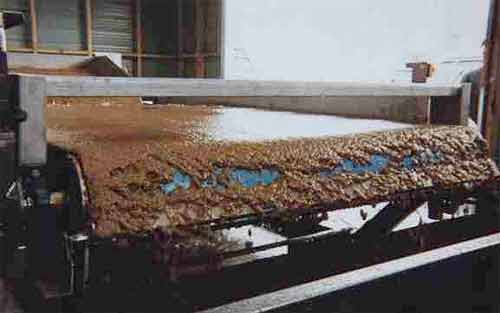
Here is my search:
If the link breaks in the mail, here is the search in short form:
If this does look like your plant, let me know.
Regards,
Neil
The email correspondence began with this:
william m foster sent a message using the contact form at http://frack.mixplex.com/contact. Dear Sirs - we are a recently formed group opposed to hydrofracking in the finger lakes - we would like to distribute a copy of your report to a number of organizations in cayuga county - would this be ok with you? Hello, The Marcellus Accountability Project (MAP) is here: http://www.tcgasmap.org/ It is run by Bill Podulka, an engineer at Cornell. My site does not have the authority to re-distribute original content - it serves as a digital library. I write annotations for many of the articles. You are welcome to print, email and/or link to any of the material in this collection, of which MAP is one of the articles. I try to present information that is accurate, useful and inspired in my choice of articles in the collection. The issues of hydrofracking go beyond the well sites and touch on larger environmental, health, and legal concerns. Since my mission is to curate and distribute, I welcome your inquiry and wish you Best Regards, Neil Zusman http://frack.mixplex.com
-----Original Message-----
From: Neil Zusman [mailto:info@frack.mixplex.com]
Sent: Monday, April 11, 2011 8:52 AM
To: morgan.foster@verizon.net
Subject: Re: [Info] marcellus accoutability project
On 4/11/11 11:01 AM, Morgan-Foster Agency wrote:
Dear Neil - thank you for responding to my request - I have contacted Mr. Podulka's group and hope he will give us a favorable reply. We came together after NY Times article indicating that Auburn's Treatment Plant "cleans" fracked water. We are going to next Thursday's 4:30 Auburn Council Meeting to try to put an end to this practice. Bill Foster
-----Original Message----- From: Neil Zusman [mailto:info@frack.mixplex.com] Sent: Monday, April 11, 2011 1:00 PM To: Morgan-Foster Agency Subject: Re: [Info] marcellus accoutability project Hello Bill, You might also wish to contact Water Hang of Toxics Targeting: http://www.toxicstargeting.com/contact_us Regards, Neil
Neil - thanks - my niece has e-mailed a letter Mr. Hang sent to Gov Cuomo concerning Auburn Plant. Will be an interesting Thursday. Bill Foster
Letter from Auburn citizens to the City of Auburn, N.Y.
We are here tonight to speak about the public notice and article that appeared in the March 31st edition of The Citizen. The public notice lists eight companies that failed to comply with the city's wastewater treatment plant regulations. Six of those companies are natural gas drilling firms. The notice states that for all of 2010, many of these natural gas companies failed to submit quarterly self-monitoring reports.
The city called their attention to it a year later. Within that time frame , the city took in over 16 million gallons of gas drilling wastewater.
The notice mentions that the companies submitted required certification that the drilling water did not come from hydraulic fracturing , or hydrofracking , in the Marcellus Shale .
Can we verify this? How do we know that this is the case apart from taking natural gas companies at their word? Is that all it is--a certificate submitted a year after the fact that the city's plant did not take a radioactive toxic mix that no wastewater treatment plant is equipped to handle?
We have little faith in the integrity of the natural gas industry.
According to a March 1 article in the New York times, in Pennsylvania natural gas drilling companies aren't even required to track what they dispose or where they dispose their wastewater. Chesapeake Energy, one of the companies listed in the public notice for failure to comply, is hydrofracking in Pennsylvania. We have watched as natural gas executives blatantly lied to a congressional committee that the chemicals used in hydrofracking are safe .
Chemicals like benzene, toluene, methanol, formaldehyde--known carcinogens and neurotoxins.
The natural gas industry says there is no evidence that hydrofracking has contaminated drinking water while people in Colorado, Wyoming, Pennsylvania and other states can now light their tap water on fire and suffer from severe health issues.
Bluntly put, the natural gas industry has no incentive to tell the truth. They are free from federal and state laws that protect public health and prevent hazardous materials from entering public water . These companies have been exempt from any responsibility to disclose what chemicals they use…
...We say no more.
Beth Cuddy, Terry Cuddy, Patty Beer, Bill Foster, Taylor Price, Theresa Walsh, Ann Foster, David Foster, Walt Aikman, Roger Beer, Teresa Foster, Devon Roblee, Andy Roblee, Laura Coburn, Steve Gamba, Brian Landers, Marisol Landers, Bodhi Landers, Amy Chamberlain, Jesse Reich, Peter Cramer, Diane Sauso, Chris Sauso, Dia Carabajal, Lee Ballard, Matthias Ballard, Vera Carabajal, Nate Vitale, Julie Vitale, Vanessa Carpenter, Nick Diego, Lisa Hoff, Beth Ann McCarthy, Jennifer Balyszak Herbert, Laurel Ullyette, Jennifer Kulis Starr, Dustin Orofino, Kelly L. Woodman, Don Miller, James Cantu, Jessica Cantu, Jesse Kline, Tom Yaglowski, Chuck Mason, Steve Kline, Rob Morphy, Carrie Gregg, Lois Brazak, Bradley Molloy, Jaeseena Bertot, Thomas Tracy, Matthew Smith, Joan House, Susan Marteney, Doug Ward, Renee Ward, Ian Connerly, Barbara Moody, Blaine Moody, Stephen Stomps, Steve Coleman, Judy Coleman, Rhonda Miller, Dean Aversa , Mike Trapani, Joe Librandi-Cowan, Penny Pitman, Mary Nellenback, Anne Mlod, Janah Autovino, David Autovino, Margaret Foster, Tracy Crandall Herman, Jim Van Arsdale, and Betsy Alexander,...
BILL NUMBER:S8129. Passed 48-9. Aug. 3, 2010.
See: Patterson Veto and updates on Marcellus Shale legislation from E2 Law Blog.
See: Solid Shale
Solid info for NYS citizens who want their grandkids to be able to walk on unpolluted ground.
This is the place to read about bills having to do with gas exploration and extraction that are under consideration, and then read what others think about them in the comments (or share your own thoughts!).
See Assembly Bill, A1322c. "An act to amend the environmental conservation law, in relation to environmental protection related to the drilling of oil and gas wells, and providing for the repeal of certain provisions upon expiration thereof".
Pictured in still frame: George Winner, who voted against the Bill.
See: Transcript (PDF 99k)
TITLE OF BILL: An act to suspend hydraulic fracturing; and providing for the repeal of such provisions upon the expiration thereof
PURPOSE OR GENERAL IDEA OF BILL: This bill seeks to place a suspension of any permitting for hydraulic fracturing low permeability natural gas reservoirs, such as the Marcellus and Utica shale formations to ensure adequate review and analysis of the effects of this type of drilling on water quality, air, environmental, safety and public health.
SUMMARY OF SPECIFIC PROVISIONS: This bill suspends the issuance of new permits for the drilling of a well which utilizes the practice of hydraulic fracturing for the purpose of stimulating natural gas or oil in the Marcellus Shale formation.
JUSTIFICATION:
The potential for development of natural gas drilling in the Marcellus Shale formation within New York State has created robust debate involving the interplay between job creation and protection of the environment. Stakeholders both in support and opposition to these developments are aggressively advancing positions that are expansive and highly controversial.
By delaying DEC's ability to issue permits until May 15,2011, this bill will provide the Legislature additional time to assess the true environmental impacts of horizontal drilling and hydraulic fracturing.
This bill will also allow the Legislature to properly deliberate the numerous concerns that have come forward during the public comment period on the Department of Environmental Conservation's draft Supplemental Generic Environmental Impact Statement (draft SGEIS).
The May 15,2011 date also ensures that the Legislature will have ample opportunity to act in the 2011 Legislative Session. Gas drilling carries with it risks of accidents, including blow-outs and hazards related to gas seeping from wells. There are also potential effects on the communities in which shale gas production is located, including traffic, noise, and an influx of transient workers. Air quality, road creation, and habitat destruction all need to be taken into account, but by far the biggest concern is water safety.
The large withdrawals of water required for hydrofracking could disrupt surface and ground water ecosystems, and improper management of drilling and hydrofracking chemicals, drilling waste, and wastewater could pollute surface water and/or groundwater.
Given the complexities of the environmental and policy issues under consideration, the need for a one year suspension on the permitting process for development of natural gas drilling in the Marcellus Shale formation cannot be overstated. This will allow for a thorough, deliberate and unrushed analysis of all factors involved.
PRIOR LEGISLATIVE HISTORY: New bill.
FISCAL IMPLICATIONS: None.
EFFECTIVE DATE: This act shall take effect immediately, and shall expire and be deemed repealed on May 15, 2011.
S8129B Votes
Ayes (48): ADAMS, ADDABBO, ALESI, BONACIC, BRESLIN, DEFRANCISCO, DILAN, DUANE, ESPADA, FARLEY, FLANAGAN, FOLEY, FUSCHILLO, HANNON, HASSELL-THOMPSON, HUNTLEY, JOHNSON C, JOHNSON O, KLEIN, KRUEGER, LARKIN, LAVALLE, LEIBELL, MARCELLINO, MCDONALD, MONTGOMERY, NOZZOLIO, ONORATO, OPPENHEIMER, PADAVAN, PARKER, Peralta, PERKINS, RANZENHOFER, ROBACH, SALAND, SAMPSON, SCHNEIDERMAN, SERRANO, SEWARD, SKELOS, SMITH, SQUADRON, STACHOWSKI, STAVISKY, STEWART-COUSINS, THOMPSON, VALESKY
Nays (9): AUBERTINE, GRIFFO, LANZA, LIBOUS, LITTLE, MAZIARZ, VOLKER, WINNER, YOUNG
Abstains (2): DIAZ, KRUGER
Excused (2): GOLDEN, SAVINO
NYSDEC Main Page on Marcellus Shale.
Hydraulic fracturing of the Marcellus Shale will require large volumes of water to fracture the rocks and produce the desired amount of gas. Each well may use more than one million gallons of water.
See: NYS Dept. of Environmental Conservation (NYSDEC): Bureau of Oil and Gas Regulation
NYSDEC is criticized for not having enough personnel to monitor gas drilling.
There is currently no Section Chief for the Compliance and Enforcement Section of the NYS Dept. of Environmental Conservation (NYSDEC) Bureau of Oil and Gas Regulation. Jack K. Dahl, Director. (518) 402-8056.
See: NYS Dept. of Environmental Conservation (NYSDEC): Draft Supplemental Generic Environmental Impact Statement (dSGEIS) on the Oil, Gas and Solution Mining Regulatory Program
The draft Supplemental Generic Environmental Impact Statement (SGEIS) for potential natural gas drilling activities in the Marcellus Shale formation was available for public review and comment through 12/31/09.
The draft SGEIS supplements the existing Generic Environmental Impact Statement (GEIS) and analyzes the range of potential impacts of shale gas development using horizontal drilling and high-volume hydraulic fracturing.
The draft SGEIS outlines safety measures, protection standards and mitigation strategies that operators would have to follow to obtain permits.
Comments - The public comment period ended on 12/31/09 and the Department is now evaluating the many comments received. Watch this page for updates.
State of New York, Department of Environmental Conservation (NYSDEC). 2009. Draft Supplemental Generic Environmental Impact Statement (SGEIS). (804 pages, PDF, 22.77 MB)
What is wrong with New York in regards to gas drilling?
See: The U.S. Forest Service page below.
In New York, the Finger Lakes National Forest - Projects & Planning page contained no information on Oil and Gas Leasing.
"Northern Rockies Rising Tide is a chapter of the international, decentralized, grassroots movement Rising Tide. We are based out of Missoula, Montana, USA and work primarily on issues concerning the northern Rocky Mountains bioregion.
Rising Tide is an all-volunteer network of groups and individuals who promote local, community-based solutions to the climate crisis and take direct actions to confront the root causes of climate change. Rising Tide was born out of the conviction that corporate-friendly “solutions” to climate change will not save us and that most government efforts are half-measures at best. We organize through decentralized, local groups that support one another through shared resources, ideas, fundraising and training.
Northern Rockies Rising Tide is committed to stopping the extraction of more fossil fuels and preventing the construction of new fossil fuel infrastructure. Equally important, we believe that we must make a just transition to sustainable ways of living.
Rising Tide’s tactics are diverse and creative, taking a bottom-up approach to connecting the dots between colonialism, corporate power, social justice, biocentrism and the environment. The systems that are destroying the planet are systems rooted in oppression. Combating climate change is not solely a matter of carbon emissions, but of confronting the institutions that destroy communities, cultures and the Earth."
Norwegian based company with operations in the US. They own and operate pipeline systems in the northeastern US for gathering and transmission of natural gas. The CEO is Øivind Risberg.
NY Senate to Suspend Hydro Fracing Permits; Norse's Program Unaffected
On Aug. 5, 2010, the New York State Senate approved a proposal to suspend hydraulic fracturing of gas reservoirs in New York State until May 15, 2011.
"This proposed bill does not affect Norse's strategy of developing our estimated 500 Bcf Herkimer field. Actually, if anything, it could improve our strategic position as I anticipate a time limited moratorium on hydraulic fracturing shale permits would extend our lease term under the force majeure clause and allow us to hold more land with our ongoing Herkimer activity.
Our Herkimer drilling program is fully financed and as we now get back to drilling on our 3D seismic locations in the second half of the year, we anticipate our reserve based lending to further improve our financial position and allow for an acceleration of our Herkimer activity into 2011," said Øivind Risberg, CEO of Norse Energy.
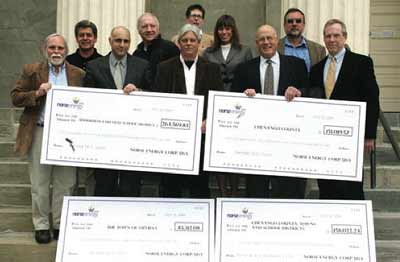
See: Tyler Murphy and Melissa DeCordova. The Evening Sun. May 14-15, 2010. "Pro-natural gas drilling concerns say:We’re in the money"
Picture on the front page shows Norse Energy Vice President Stephen Keyes, City of Norwich Mayor Joseph Maiurano, Village of Sherburne Mayor Bill Acee, Realtor Bruce Beadle, Town of Smyrna Supervisor James Bays, County Planning Director Donna Jones, Commerce Chenango President Maureen Carpenter, County Treasurer William Evans, County Consultant Steve Palmatier and Nornew spokesman Dennis Holbrook receiving $656,923 worth of "symbolic checks".
The municipality [Norwich, NY] is one of the first in Chenango County to reap the financial benefits of natural gas development on an unprecedented local scale.
Norse Energy Inc., the Norwegian-based parent company of Nornew, has drilled 23 wells in the county, 13 in the Town of Smyrna since 2007.
The check’s amounts were based on the numbers released by the Chenango County Office of Real Property Services on May 1 and reflect the estimated assessed value using last year’s tax rates.
Pennsylvania based blog. Includes a quotes page unique to blogs on the environment, highlighting the struggle between citizens, corporations, and government regulations, providing a larger historical context.
It is horrifying that we have to fight our own government to save the environment. ~Ansel Adams
“In the woods we return to reason and faith”
Ralph Waldo Emerson
See: Fracked Dry
Over the next thirty years, given the present technology, 500 billion gallons of water will be retired underground in Pennsylvania through the process known as horizontal fracturing. This is according to email discussions I have had with Penn State’s Marcellus Center for Outreach and Research
500B is equivalent to 68 Harvey’s Lakes, or 263 Huntsville reservoirs, or 200 Wallenpaupacks (a relatively shallower but more expansive body of water).
This water will no longer be available for human use. It will lurk in the shattered caverns below. This dispersed sea will be waiting for a flaw, a break, an errant burst of pressure…
...Recently, EnCana Corporation was given permission to drill three “exploratory” natural gas wells in the Back Mountain, near Herb Baldwin's property.
This article appeared in the June 21, 2010 edition of The Nation.
When a well is fracked—each well is generally fracked up to ten times—between 15 and 40 percent of the mix flows back to the surface. Companies operating in the Marcellus, which is naturally radioactive, must find a way to dispose of thousands of gallons of water, toxic chemicals, brine and radium.
There are several ways things can go wrong, Horwitt says. Fluids can be spilled during transport, they can travel underground through natural or man-made fractures, or they can contaminate nearby areas if they're not stored properly...
Citizen action groups have popped up all over the Marcellus region, including the Shaleshock Action Alliance and the Pennsylvania-based Damascus Citizens for Sustainability, and around the country.
On May 26 As You Sow, a shareholder advocacy organization representing the Park Foundation of Ithaca, won support from a surprising 26 percent of shares at ExxonMobil's annual meeting for a proposal that would have required the company to disclose its efforts to reduce risks from natural gas drilling. "The Gulf oil spill is a powerful example of how oil and gas drilling can devastate the environment," Park Foundation executive director Jon Jensen wrote in a statement. "This is a good first step in responsibly seeking energy in a way that protects the environment, human health, and the welfare of the company."
See: As You Sow | Mixplex
See: Dusty Horwitt. (2009). "Drilling Around the Law Report." Environmental Working Group. 24 pages.
See: Exxon Confronts Nuns, Calpers Over Global Warming Plans, Boskin
February 2010 issue concentrates on major media environmental journalism.
In a memo leaked this summer from the Institute to its members, which its website boasts range from “the largest major oil company to the smallest of independents,” the trade organization’s CEO urged “oil companies to recruit their employees for events that will ‘put a human face on the impacts of unsound energy policy,’
...At the same time as they talk big about going green, the oil barons have waged highly organized disinformation campaigns going back decades to prevent legislative efforts to combat climate change (Mother Jones, 5–6/05). This fall, blogger Zachary Roth (TPMMuckraker, 11/4/09) noted that the American Petroleum Institute “has been a key opponent of serious efforts to address climate change, spending over $3 million lobbying on the Waxman-Markey climate change bill this year.” [The bill was approved by the House of Representatives on June 26, 2009 by a vote of 219-212]
According to the Sourcewatch article on the Bill, Brent Blackwelder, president of Friends of the Earth, praised the efforts by Waxman, Markey, and others to develop global warming legislation, but added that the bill had been "corrupted by members of Congress backed by oil and coal interests."
See: Ken Ward Jr., "Waxman-Markey update: A global warming crossroads?" Coal Tattoo, May 18, 2009.
NYS Water Resources Institute at Cornell
The Mission of the New York State Water Resources Institute (WRI) is to improve the management of water resources in New York State and the nation. As a federally and state mandated institution located at Cornell University, we are uniquely situated to access scientific and technical resources that are relevant to New York State's and the nation's water management needs. We collaborate with regional, state, and national partners to increase awareness of emerging water resources issues and to develop and assess new water management technologies and policies. WRI connects the water research and water management communities.
See Gas Wells: Waste Management of Cuttings, Drilling Fluids, Hydrofrack Water and Produced Water
See MarcellusShaleReport-6-12-08
….Drilling muds that circulate through the well and return to the surface may contain dissolved and suspended contaminants including cadmium, arsenic, and metals such as mercury, copper and lead; hydrocarbons; hydrogen sulfide and natural gas, as well as drilling mud additives, many of which contain potentially harmful chemicals (e.g., chromate, barite).”
Office of the Attorney General, New York State. Eric Schneiderman.
Oil and Gas Leases: Land Owner Rights and Land Owner Tips.
Problems with Landmen
Misleading or Misunderstood Statements
1. “Your property will [or won’t] be in the unit.”
2. “This is the standard lease, and it’s not negotiable”.
3. “All your neighbors have signed, and you’re the sole person holding everything up”.
4. “Don’t you want to receive $X every month”?
5. “If you don’t sign, we’ll take the gas from your property without paying you”.
Feeling Under Pressure? Consider the Following:
1. Obtain the full name, address, and telephone number of both the landman and the business they represent.
2. Direct the landman to leave the property and to not return or contact you again.
See: Jon Campbell. Star-Gazette. Nov. 7, 2010. "Attorney General-elect Schneiderman staunchly opposes hydraulic fracturing."
Eric Schneiderman, a Democrat who handily defeated Republican gas-drilling supporter Dan Donovan on Tuesday, has said he will sue to stop the controversial drilling process of hydraulic fracturing -- until it is proven safe -- and aggressively go after drillers who break the rules."
Assembly Speaker Sheldon Silver and Environmental Conservation Committee Chair Robert K. Sweeney announced the passage of legislation (A.11443-B) that would suspend the issuance of new permits for natural gas or oil drilling involving hydraulic fracturing, known as hydrofracking, until May 15, 2011.
"This moratorium will help ensure that the hydrofracking process will only be allowed in New York after a thorough, deliberate and unrushed analysis of the process is complete," said Silver (D-Manhattan). "By preventing the state from issuing new permits to oil and gas companies until further review, we have protected our water supply and served notice to the industry that the health and safety of New Yorkers is our top priority."
Hydraulic fracturing involves pumping water and chemicals under pressure to create fractures in rock containing natural gas or oil. The resulting fractures permit the natural gas or oil to be captured. Concerns have been raised about the potential environmental and health impacts of the chemicals contained in the hydraulic fracturing fluid. Currently, the Environmental Protection Agency is conducting a study to investigate the possible relationships between hydraulic fracturing and drinking water.
"Decisions regarding the safety of our water and air shouldn't be made in haste, but should be the result of careful study and deliberation," said Sweeney. "If the water has been polluted it will be too late. This legislation will remove any 'time pressure' and allow DEC to do its job correctly."
Will Governor Patterson Veto this Bill?
“Even with the tremendous revenues that will come in at this time we’re not going to risk public safety or water quality, which will be the next emerging global problem after the energy shortage,” he told WAMC-FM radio last week. “At this point, I would say that the hydrofracking opponents have raised enough of an argument to thwart us going forward at this time.”
Zeller, Tom. "New York Governor Vetoes Fracking Bill." The New York Times: Greenwire, December 11, 2010.
Gov. David A. Paterson of New York on Saturday vetoed legislation intended to curtail natural gas development using the technique called hydraulic fracturing until a closer review of its effects can be undertaken.
Instead, the governor issued an Executive Order instituting a moratorium that extends until July 1, 2011 — beyond the date specified in the legislation — and that more narrowly defines the types of drilling to be restricted.
“This legislation, which was well intentioned, would have a serious impact on our state if signed into law,” Mr. Paterson said in a prepared statement. “Enacting this legislation would put people out of work – work that is permitted by the Department of Environmental Conservation and causes no demonstrated environmental harm, in order to effectuate a moratorium that is principally symbolic.”
See: Sue Smith-Heavenrich. The Marcellus Effect. December 15, 2010. "No Moratorium And No Horizontal Hydro-Fracking".
Assemblywoman Barbara Lifton explained that an Executive Order, no matter how good, is second best to legislation. A statute, she points out, would not face the risk of being rescinded by Governor Cuomo when he takes office.
“There was also a lot of misinformation from the industry,” Lifton said. Regardless of how safe people insist the current drilling technology is, there are problems with vertical wells. That’s why the moratorium included vertical wells, Lifton said. Indeed, it was vertical Marcellus wells that contaminated the drinking water wells in Dimock, PA.
What does the Executive Order really say? Not much, when you really read it...
See: Sharon Wilson. December 15, 2010. Bluedaze. "The giant loophole NY Gov. Patterson gave industry".
I've kept quiet on the Patterson executive order to hault fracking because something smelled funny about it. Why veto the moratorium then issue an EO? That didn't make sense to me.
The Marcellus Effect blog explains how Patterson is having his cake and eating it.
His giant loophole allows vertical fracking so watch for a big rush on vertical permits. Industry will chop down a bunch of trees and get their vertical pad sites all ready for when the EO expires. Then all they have to do is apply for a change of permit.
There's always a loophole.
See: Energy in Depth. Dec. 2, 2010. "Live From New York…"
See: Sarah Hoye. Dec. 2, 2010. CNN. "New York could be first state to ban controversial drilling practice".
See: Peter Mantius. Dec. 1, 2010. DC Bureau. "New York Assembly Delays Fracking Until May 2011".

Ben Perkus. Photo by Neil Zusman
New York Residents Against Drilling (NYRAD) is a grassroots network of local residents who are concerned about unconventional gas development in New York State.
See the Personal Accounts and Viewpoints pages.
The Tioga County Landowners Group was organized in the summer of 2008 for the express purpose to educate ourselves and our members about the mineral right opportunities.
We are an organization of 1600+ families who own 111,000+ acres of land in Tioga County, NY. At this time there are 75,000 acres available for immediate lease with additional acreage that will be available in the near term. A small percentage of our existing population is currently under lease.
We seek a drilling partner who is fair and equitable, will be sensitive to our property, our community, and the environment. In exchange, you will be partnering with a coalition who is ready and willing to work with a responsible drilling partner towards a successful outcome for us all.










